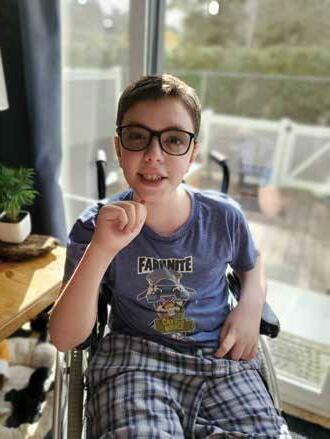
3 minute read
Lighting the Path to End-of-Life Care
Audrey Larson
Palliative and hospice care teams assist patients to find peace and calm in their final days.
People should understand that those specialized care teams deliver endless amounts of comfort, care, and love with a heartfelt passion for helping their patients.
Definitions of Palliative and Hospice Care
Palliative Care is an approach that improves the quality of life of patients—adults and children— and their families who are facing problems associated with serious and/or life-limiting illness. It prevents and relieves suffering through the early identification, correct assessment, and treatment of pain and other problems, whether physical, psychosocial, or spiritual.
Palliative care uses a team approach to support patients and their caregivers. It offers a support system to help patients live as actively as possible until death. Hospice Care (sometimes known as “hospice palliative care”) is whole-person care that lies within palliative care for those at the end stage of a life-limiting illness, when life expectancy is weeks to short months. An interdisciplinary team that includes specially trained hospice volunteers provides clinical care and comfort, addressing specific physical, psychological, social, spiritual, and practical issues with a focus on quality of life through to death and into bereavement for the families.
In hospice, the furnishings and lighting are more home-like, less clinical, and the pace is decidedly different than an acute hospital ward. According to Jill Gerke, Island Health’s Director for Palliative and End-of-Life Care, having dedicated hospice spaces across Vancouver Island has been a key priority for Island Health.
“Over the last year in particular, through partnerships with local community hospice organizations, we have been able to increase the options for specialized end-of-life care for patients and their families through the increase of hospice beds in Victoria Hospice and the new Cowichan Hospice House in Duncan,” notes Gerke.
“The ultimate goal of hospice palliative care is to provide a refuge where patients and families can focus on being together through to end-of-life, with the support of specialized care teams and volunteers.”

Palliative and end-of-life care providers are uniquely kind and caring individuals who provide understanding, peace, and compassion that keeps the dignity of dying in the hands of the person and the family.
Dr. Jody Anderson, Medical Director for the program at Island Health, says quality end-of-life care doesn’t just address the patient’s care needs; it addresses the fundamental need of families to know their loved ones are safe and comfortable, and not in pain.
“Our palliative care teams are well aware that when someone has a life-limiting illness, it can be overwhelming for the patient and their loved ones,” says Anderson. “Our role is to provide practical support to all involved to help them navigate one of the most difficult experiences of their lives, as painlessly as possible. It is a privilege to care for patients and their (chosen) families at this time.”
Both palliative care and hospice care are offered by specialized teams in hospital, long-term care, hospice settings, and in an individual’s home. s For more information www.islandhealth.ca/learn-abouthealth/end-of-life-care-hospice Audrey Larson, a communications and engagement consultant with Island Health, is grateful to live, work, and learn in Coast Salish territory. Audrey believes wholeheartedly in the power of collective impact and strives to support community connections that create better health for all.

We have cited parts of Audrey Larson’s article published in Island Health Magazine, Spring 2021, by Island Health Communications.
This year, help them plan to share their everlasting love.
You and your clients can help end animal cruelty and comfort animals
in need. Contact us today to learn more about how they can leave a gift in their Will.
Charitable Number: 11881 9036 RR0001 Clayton Norbury cnorbury@spca.bc.ca 1.855.622.7722 ext. 6059










